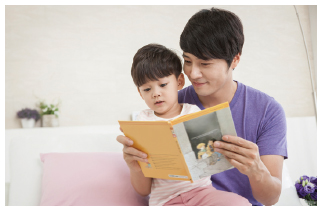John Patrick Pullen, a journalist for Time magazine, once wrote in an article that “One of the most unexpected things about having children is how the quest to mold perfect little humans ultimately becomes a project about making yourself a better person.” While reading this statement, I recalled a passage in an English textbook that focused on how to communicate with children when asking for favors. According to the passage, “Children are highly responsive to the messages they receive.” This means that adults have to talk to children directly without sound too negative. However, talking to children this way is not the only responsibility parents have. Especially in this digital age, parents must be always aware of their speaking habits.

Our world has moved into a new era of utilizing speech recognition technology. This new fad in the artificial intelligence (AI) sphere is now causing a cultural lag which can lead to parenting problems. By cultural lag, I mean that common etiquette among humanity is now facing a dilemma that becomes more apparent while interacting with these new human-like robots. This is especially problematic for people raising children, because this manner of communication may affect a child’s speech etiquette. In the article, Pullen demonstrated this problem by writing about his own experiences with his son. His child used only imperatives since Pullen’s communication with AI robots had been a bad speech model. For example, whenever Pullen wanted to do household chores, he shouted his needs to his son. Observing and listening to his father’s speech, the child learned that this was the proper way to assert oneself when there was a need to be fulfilled.
Pullen’s parenting story raises questions about how courteous we should be when talking to the robots capable of speech recognition. For humankind, it is common to use words like “please” and rephrase demands in a polite way to appeal for needs. However, when robots are involved in this situation, using polite words becomes awkward. In spite of this awkwardness, parents have to overcome a problem ? “cultural lag.” In other words, our society should focus and deliberate on how non-material culture (ethics, philosophy, and so on) can catch up with technological development.
A saying, “Do unto others as you would have them do unto you,” is known as the Golden Rule and should be considered common sense in this day and age. As the usage of robots and AI is becoming more prevalent and impacting our daily lives, it is difficult for people to distinguish between a robot and a person when they start communicating. Albeit, I do not think that we should inject personality characteristics into robots since robots are not organically produced. The issue of bad parenting can be solved in several ways. One of the most effective methods is to teach our children that speaking in a proper and polite manner is different from the type of language we use with robots. Also, the parents themselves can demonstrate courteous and respectful language to each other so that children can learn to distinguish human-communication from robot-communication by gut. Therefore, even while parenting, these ways can reduce some of the difficulties people have staying aware of their use of polite language.
Lee Gyeong-hyeon
Dept. of Urban Administration, ’17

